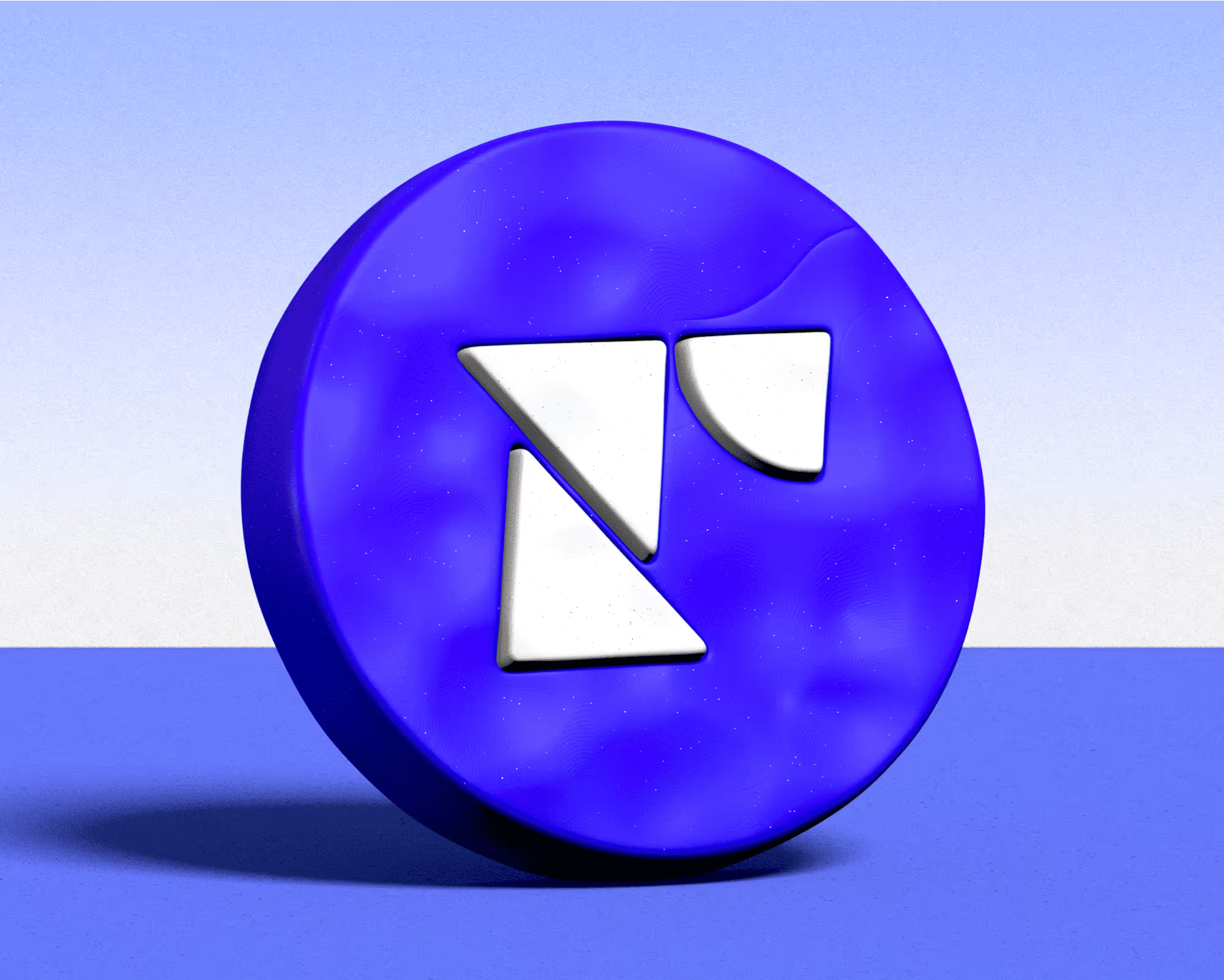Lead Enrichment Tools
Lead enrichment tools are applications that automatically gather and append new information to existing lead profiles within a database or CRM. By collecting data from various sources like public databases and social media, these tools fill in missing details such as contact information, job titles, and company data. This process provides sales and marketing teams with a more complete and accurate view of their prospects, enabling better personalization and segmentation.
Benefits of Lead Enrichment Tools
By transforming raw, incomplete lead data into comprehensive profiles, these tools offer significant advantages. They empower sales and marketing teams to operate more effectively and drive better results across the board.
- Understanding: Gain deeper insights into leads, enabling the creation of detailed buyer personas and tailored strategies.
- Personalization: Craft highly targeted messages and content that resonate with individual lead preferences and pain points.
- Scoring: Achieve more accurate lead scoring and prioritization by providing a complete view of a prospect's attributes.
- Segmentation: Divide leads into specific groups based on criteria like industry or location for more effective campaigns.
- Efficiency: Automate data collection and validation, saving teams valuable time previously spent on manual research.
Key Features to Look For
When evaluating lead enrichment tools, it's crucial to look beyond surface-level promises. The right platform should integrate into your workflow and provide reliable, actionable data. Focus on these core features to ensure you choose a tool that delivers real value.
- Integrations: Seamless connection with your existing CRM and marketing automation platforms.
- Data Accuracy: High-quality, verified, and up-to-date information to ensure reliability.
- Automation: Real-time enrichment capabilities that automatically update lead profiles.
- Compliance: Adherence to data privacy regulations like GDPR and CCPA.
Lead Enrichment Tools vs. Lead Scoring Tools
While both tools aim to improve sales and marketing effectiveness, they serve distinct functions in the lead management process.
- Enrichment: These tools focus on data quality, appending information like job titles and company details to incomplete lead profiles. This creates a comprehensive view for personalization but can be limited by data accuracy. They are foundational, ideal for companies of any size needing to clean up or build out their initial lead database.
- Scoring: These tools evaluate and rank leads based on their conversion potential, helping teams prioritize outreach. This boosts efficiency but can be misleading if based on poor data. They are best for teams with high lead volume, from mid-market to enterprise, who need to focus resources on the most promising prospects.
Popular Lead Enrichment Tools
The market for lead enrichment tools is crowded, with numerous platforms competing for attention. Each tool offers a unique blend of features, data sources, and pricing models designed to meet specific business needs. Choosing the right one depends on your company's scale, target market, and existing tech stack.
- Leaders: Dominated by platforms with vast B2B databases and comprehensive features tailored for enterprise-level clients.
- Niche: Includes specialized tools that focus on specific data points, such as technographics or firmographics.
- Hybrids: Combines data enrichment with other sales functions like prospecting and engagement in a single platform.
Best Practices for Using Lead Enrichment Tools
Prioritize data quality by choosing tools that aggregate from diverse sources and validate information. Regularly cleanse your database and integrate the tool with your CRM to automate updates. This ensures your team always works with the most accurate and relevant lead data.
Use the enriched data to segment leads and personalize your messaging for more effective campaigns. Ensure your tool adheres to privacy regulations like GDPR to maintain compliance. Monitor performance to continuously optimize your outreach and data strategy.
Frequently Asked Questions about Lead Enrichment Tools
How accurate is the data from lead enrichment tools?
Accuracy varies by provider. The best tools use multiple verified sources and real-time updates for high reliability. Always evaluate a tool's data validation process to ensure you're getting trustworthy information for your campaigns.
Do lead enrichment tools integrate with any CRM?
Most leading platforms offer native integrations with popular CRMs like Salesforce and HubSpot. For less common systems, many provide APIs or use connectors like Zapier to ensure seamless data flow into your existing tech stack.
How do these tools comply with data privacy regulations?
Reputable tools are built for compliance with regulations like GDPR and CCPA. They source data ethically from public and permission-based channels and offer features to manage data responsibly, keeping your outreach compliant.
Other terms
Lead Generation Software
Lead generation software helps businesses automate finding and capturing potential customers' contact information to build sales pipelines.
Lead Qualification
Lead qualification is the process of determining which prospects are most likely to become paying customers based on predefined criteria.
Stress Testing
Stress testing is a type of software testing that determines a system's robustness by pushing it beyond its normal operational capacity.
Landing Pages
A landing page is a standalone web page created for a marketing campaign. It’s where a visitor “lands” after clicking an ad or email link.
Sales Pipeline
A sales pipeline is a visual representation of where prospects are in the sales process, from the first contact to the final sale.
Representational State Transfer Application Programming Interface
A Representational State Transfer (REST) API is a web service that uses a simple, stateless architecture for systems to communicate online.
No Cold Calls
No Cold Calls is a sales strategy that replaces unsolicited calls with warm outreach to prospects who have already demonstrated interest.
Performance Plan
A performance plan is a formal document outlining an employee's goals, expectations, and metrics for success over a specific period.
Firmographics
Firmographics are descriptive attributes of organizations, used to segment companies by characteristics like industry, size, and location.
Data Security
Data security protects digital information from unauthorized access, corruption, or theft throughout its entire lifecycle.
Cold Email
A cold email is an initial outreach sent to a potential customer with whom you've had no prior contact, aiming to introduce your business.
Demand Generation
Demand generation is the process of creating awareness and interest in your products to build a pipeline of qualified leads for your sales team.
Predictive Lead Generation
Predictive lead generation uses data and AI to find prospects most likely to buy, helping teams focus their efforts on high-value leads.
User Interface
A User Interface (UI) is the point where humans and computers interact. It encompasses all visual elements like screens, icons, and buttons.
Firmographic Data
Firmographic data is information used to classify firms. It includes attributes like industry, employee count, location, and annual revenue.
Marketing Mix
The marketing mix is the set of marketing tools a company uses to sell products, defined by the 4Ps: Product, Price, Place, and Promotion.
Enterprise Resource Planning
Enterprise Resource Planning (ERP) is a system of integrated software that businesses use to manage and automate their core day-to-day processes.
Warm Outreach
Warm outreach is contacting prospects with whom you have a pre-existing connection, like a mutual contact, making your message more personal and effective.
B2B Data Enrichment
Learn about B2B data enrichment, including benefits of B2B data enrichment, implementing B2B data enrichment strategies, B2B data enrichment vs. data cleaning.
Enrichment
Enrichment is the process of adding third-party data to your existing customer profiles to get a more complete picture of your leads.
Account Development Representative
An Account Development Representative (ADR) identifies and qualifies new business opportunities, creating a pipeline for account executives.
GTM
A go-to-market (GTM) strategy is an action plan that outlines how a company will reach target customers and achieve a competitive advantage.
Microservices
Microservices is an architecture where apps are built as a collection of small, independent services that communicate with each other over APIs.
Voice Broadcasting
Voice broadcasting is an automated system that delivers a pre-recorded voice message to a large list of phone numbers simultaneously.
Sales Intelligence Platform
A sales intelligence platform is software that provides sales teams with data and insights about prospects to help them sell more effectively.
Sales Enablement Content
Sales enablement content refers to the materials and tools that empower your sales team to engage prospects and close deals more efficiently.
Sales Calls
A sales call is a real-time conversation between a salesperson and a prospect, aiming to persuade them to purchase a product or service.
Sales Demo
A sales demo is a presentation where a sales rep shows a prospect how a product or service works and solves their specific problems.
RESTful API
A RESTful API is a web service interface that uses HTTP requests to access and use data, adhering to the constraints of REST architecture.
Account-Based Marketing Software
Account-Based Marketing (ABM) software helps teams coordinate personalized marketing and sales efforts to land high-value customer accounts.
Outbound Lead Generation
Outbound lead generation means proactively reaching out to potential customers who haven't yet expressed interest to introduce them to your brand.
Account-Based Everything
Account-Based Everything (ABE) is a strategy aligning sales, marketing, and success teams to focus on a specific set of high-value accounts.
White Label
White labeling is when a company puts its own branding on a product or service that was actually produced by a different company.
Integration Testing
Integration testing is a software testing phase where individual modules are combined and tested together to verify their interaction.
Account-Based Marketing
Account-Based Marketing (ABM) is a focused B2B strategy where marketing and sales collaborate to target and convert high-value accounts.
Single Sign-On (SSO)
Single Sign-On (SSO) is an authentication method allowing users to access multiple applications with one set of login credentials.
Account
An account is a company or organization that you're targeting for sales. It can be a prospective, current, or even a past customer.
Competitive Intelligence (CI)
Competitive intelligence (CI) is the ethical gathering and analysis of market data to inform strategic business decisions and gain an advantage.
Triggers
Triggers are predefined conditions that, when met, automatically launch a workflow or action, ensuring timely and relevant outreach.
Dark Funnel
The Dark Funnel describes customer buying activities that are untrackable by companies, such as private chats and word-of-mouth referrals.
Email Personalization
Email personalization uses subscriber data—like their name, interests, or past behavior—to create highly relevant and targeted email campaigns.
Call for Proposal
A Call for Proposal (CFP) is a document that solicits proposals, often through a bidding process, for a specific project or service.
Sales Partnerships
Sales partnerships are strategic alliances where two companies co-sell products to expand their reach, generate new leads, and increase revenue.
Canary Releases
A canary release is a deployment strategy where new software is rolled out to a small user group first, minimizing risk before a full release.
Website Visitor Tracking
Website visitor tracking collects and analyzes data on user behavior to understand their journey and improve the overall user experience.
Lead Generation Funnel
A lead generation funnel is a systematic process that guides potential customers from initial awareness of your brand to becoming qualified leads.
Marketing Qualified Opportunity
A Marketing Qualified Opportunity (MQO) is a lead vetted by marketing as a genuine sales opportunity, ready for direct sales follow-up.
B2B Sales
Learn about B2B sales, including key strategies for B2B success, types of B2B sales models, & B2B vs. B2C sales: understanding the differences.
Channel Partners
Channel partners are third-party firms that help market and sell a company's products or services, acting as an indirect sales force.
SFDC
SFDC stands for Salesforce Dot Com, a popular cloud-based CRM platform that helps companies manage their customer interactions and data.
Buyer Intent
Learn about buyer intent, including understanding buyer intent signals, strategies to capture buyer intent, & buyer intent vs. customer interest.
No Spam
“No Spam” is a commitment to sending only relevant, solicited messages. It means avoiding bulk, unwanted emails to respect the recipient's inbox.
X-Sell
X-Sell, or cross-selling, is a sales strategy of selling additional, related products or services to an existing customer base.
Sales Development
Sales development is the process of identifying and qualifying potential customers to create a pipeline of sales-ready leads for closers.
Logo Retention
Logo retention is a key B2B metric that measures a company's ability to retain its customers, or 'logos,' over a specific period.
Account Management
Account management is the post-sales practice of building and nurturing long-term relationships with a company's most valuable clients.
Consumer
A consumer is an individual or entity that buys products or services for personal use, not for resale. They are the final user in a supply chain.
Buying Committee
A buying committee is a group of stakeholders within an organization who are jointly responsible for making major purchasing decisions.
Salesforce Administrator
A Salesforce Administrator is a certified professional who manages and customizes the Salesforce platform to meet a company's specific business needs.
Sales Development Representative (SDR)
A Sales Development Representative (SDR) is a sales specialist who finds and qualifies new leads, building a pipeline for the sales team.
Sales Engineer
Sales Engineers blend deep technical knowledge with sales acumen, demonstrating a product's value and solving customer problems to drive revenue.
Digital Advertising
Digital advertising is the practice of delivering promotional content to users through various online and digital channels like social media or search engines.
Retargeting Marketing
Retargeting marketing is a digital advertising strategy that targets users who have previously interacted with your website or brand online.
Sales Operations Analytics
Sales operations analytics is the practice of analyzing sales data to improve the efficiency and effectiveness of the entire sales process.
Email Marketing
Email marketing is a digital strategy where businesses send targeted emails to prospects and customers to build relationships and drive sales.
Email Cadence
An email cadence is a scheduled sequence of emails sent to prospects over a specific period to nurture leads and drive engagement.
Product Champion
A product champion is an internal evangelist who drives a product's adoption and success by ensuring it solves real problems for their team.
Smile and Dial
"Smile and dial" is a high-volume sales tactic where reps make numerous cold calls from a list, often with little to no prior research.
Event Marketing
Event marketing is a strategy where brands engage directly with target audiences through live events like trade shows, conferences, or webinars.
Operational CRM
An Operational CRM is a system that automates and improves customer-facing business processes like sales, marketing, and customer service.
Precision Targeting
Precision targeting is a marketing strategy that uses data to identify and reach a highly specific audience most likely to convert.
Ideal Customer Profile
An Ideal Customer Profile (ICP) is a detailed description of the perfect, hypothetical company that would get the most value from your product.
Customer Buying Signals
Customer buying signals are the actions, behaviors, or statements a prospect makes that indicate they are moving towards a purchase decision.
Direct Sales
Direct sales involves selling products directly to consumers in a non-retail setting, such as at home, online, or person-to-person.
Lead List
A lead list is a curated database of potential customers (leads) with contact information and other key data for sales and marketing outreach.
Webhooks
Webhooks are automated messages sent by an app when a specific event occurs. They push real-time data to another app's unique URL.
Awareness Buying Stage
The awareness stage is the first step in the buyer's journey, where a potential customer realizes they have a problem or an opportunity to explore.
Lead Generation
Lead generation is the process of identifying and cultivating potential customers for a business's products or services.
Big Data
Learn about big data, including understanding big data characteristics, benefits of leveraging big data, & challenges in managing big data.
Sales Automation
Sales automation uses software to streamline and automate repetitive, manual sales tasks, freeing up reps to focus on selling.
GDPR Compliance
GDPR compliance means following the EU's strict data protection laws to ensure the secure and lawful handling of personal data.
Marketing Operations
Marketing Operations (MOps) is the engine of a marketing team, managing the technology, processes, and people to run campaigns effectively.
Network Monitoring
Network monitoring is the continuous process of tracking a computer network's performance and health to detect and resolve issues proactively.
Account-Based Sales Development
Account-Based Sales Development (ABSD) is a focused strategy where SDRs target key stakeholders within specific, high-value accounts.
Consultative Selling
Consultative selling is an approach where salespeople act as expert advisors, diagnosing customer needs to provide the most suitable solutions.
Business Continuity
Learn about business continuity, including understanding key components, steps to ensure continuity, common challenges, & best practices.
Simple Object Access Protocol Application Programming Interface
A Simple Object Access Protocol (SOAP) API is a web service that uses XML to exchange structured information between different applications.
Request for Information
A Request for Information (RFI) is a formal process for gathering information from potential suppliers before issuing a more detailed proposal.
Sales and Marketing Analytics
Sales and marketing analytics involves measuring and analyzing performance data to maximize effectiveness and optimize return on investment (ROI).
Docker
Docker is a tool that packages applications and their dependencies into isolated environments called containers for easy deployment and scaling.
Buyer’s Remorse
Buyer’s remorse is the sense of regret or anxiety that can arise after making a purchase, often questioning if it was the right decision.
Customer Retention
Customer retention refers to the strategies and activities a company uses to prevent customer churn and encourage them to continue buying.
Outbound Sales
Outbound sales is when reps proactively contact potential customers through cold calls or emails to generate leads and build a sales pipeline.
De-dupe
De-duping, or data deduplication, is the process of eliminating duplicate copies of data within a dataset to improve accuracy and save space.
Revenue Forecasting
Revenue forecasting is the process of estimating a company's future revenue, using historical data and market trends to guide strategic planning.
Business-to-Business (B2B)
Learn about B2B, including what is it, its key elements, the benefits of B2B partnerships, the differences between B2B and B2C, and strategies for effective marketing.
Account-Based Selling
Account-Based Selling is a B2B strategy where sales and marketing treat high-value accounts as markets of one, using personalized outreach.
Demand Generation Framework
A demand generation framework is a strategic process for creating awareness and interest in your product, ultimately driving new business.
Brag Book
Learn about brag book, including crafting your outstanding brag book, essential components of a brag book, & brag book vs. resume: unveiling the differences.
Marketing Qualified Account
A Marketing Qualified Account (MQA) is a target company that has shown significant engagement, indicating it's ready for the sales team to pursue.

























